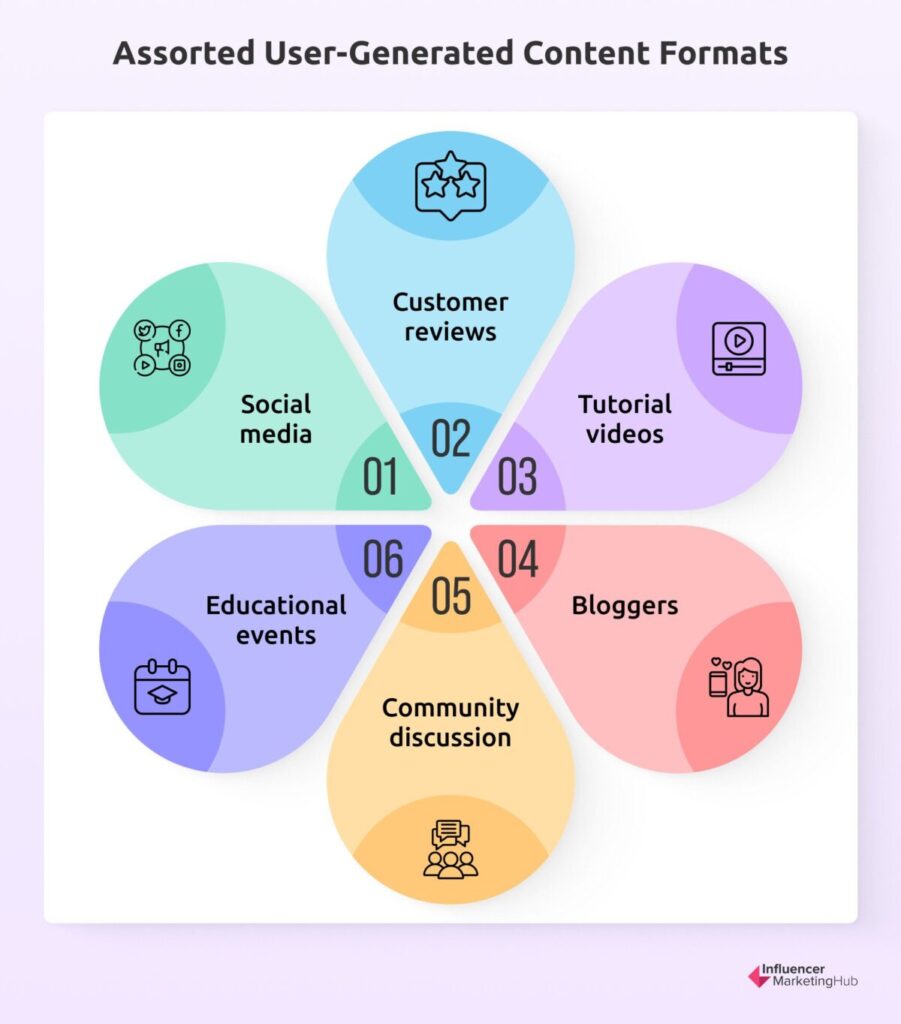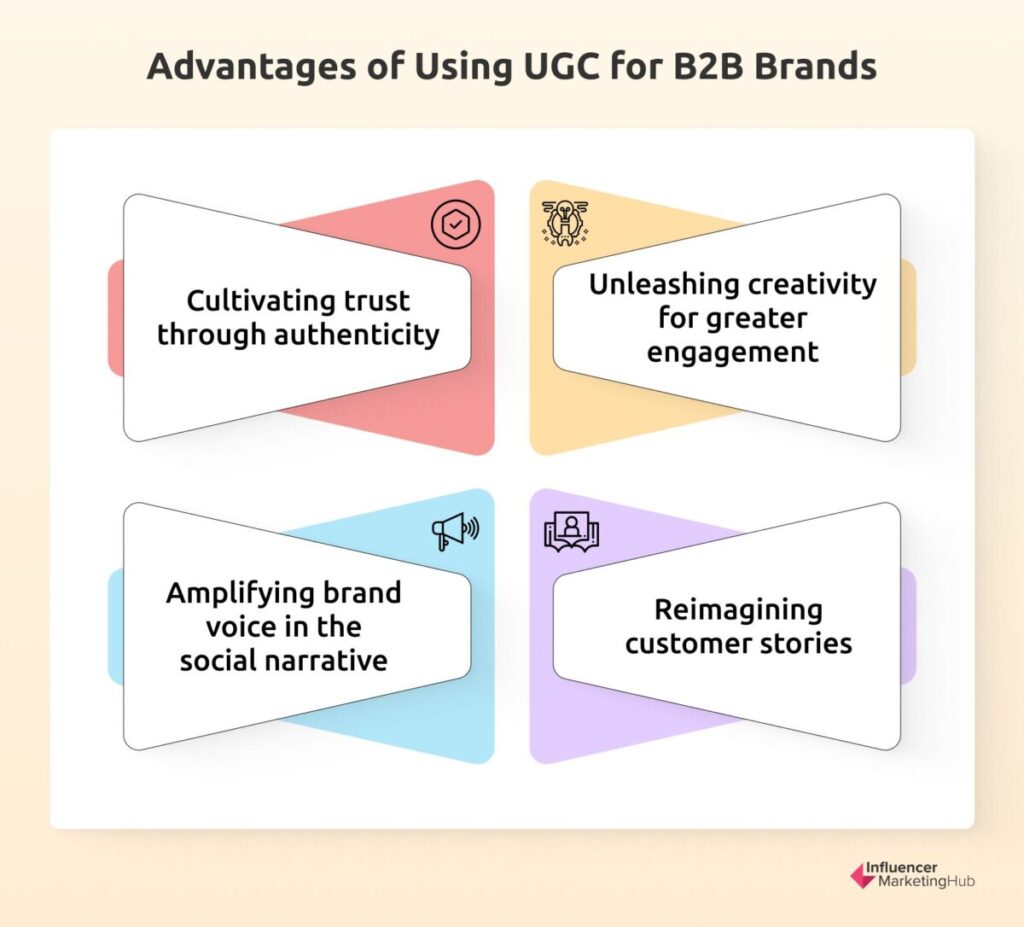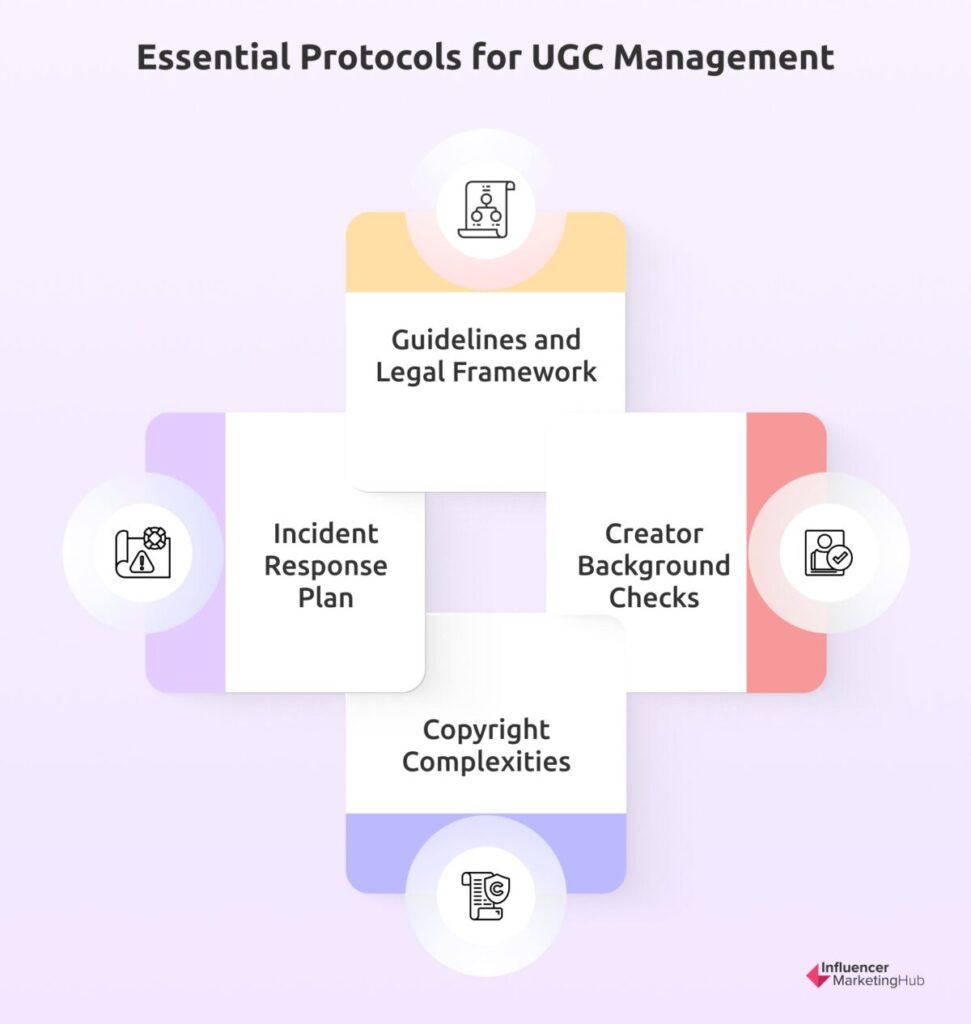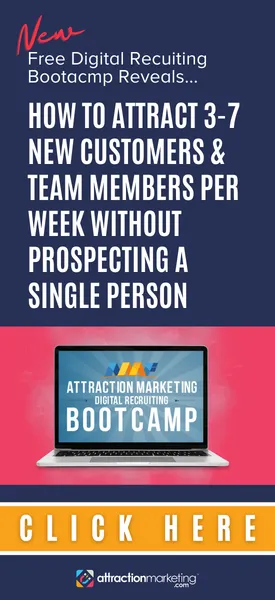The social media landscape is no longer just a playground for consumer marketers. It’s evolving into a new arena where B2B marketers compete for the attention and approval of business buyers.
The game is changing, and now B2B brands from all walks of life are sitting up, taking notice, and pivoting toward embracing the wild, untamed world of corporate user-generated content.
Historically, B2B brands have been like cautious gardeners, preferring to nurture their marketing efforts in a carefully curated brand garden. However, 84% of C-suite execs and VPs admitted social content sways their buying decisions, a sign that the B2B landscape is fertile soil for change.
Let’s look at how UGC is becoming the answer to B2B brands aiming to add a human touch to their marketing narratives.
How to Effectively Leverage User-Generated Content (UGC) for B2B:
B2B User-Generated Content Explained
User-generated content (UGC) contrasts the meticulously planned and executed campaigns by traditional corporate marketing teams or external agencies. Utilizing UGC offers a raw and authentic perspective that aligns with branding organically.
You might be surprised to hear that every company already leverages UGC in some form or another. Some examples of UGC include:


Social media
Whether it’s a LinkedIn contact sharing a personal experience or a growth-hacker on Twitter, social media thrives on authentic and lived experiences. It’s a realm where word of mouth is amplified and valued for its trustworthiness.
Customer reviews
Nowadays, most customers go to detailed comparison sites like G2 and Capterra for reviews. Alternatively, real customers grow their platforms to share the tools and services that make their lives easier.
Tutorial videos
From YouTube walkthroughs to TikTok tutorials, video has become the easiest way to learn and master products and services. The self-serve ethos thrives on platforms like YouTube, where creators offer step-by-step guides that often surpass official documentation in clarity and utility.
Bloggers
Whether it’s through a deep-dive analysis or addressing niche problems, blog posts and newsletters provide new ideas for niche communities in a relatable manner that rigid corporate comms guides just can’t replicate.
Community discussion
LinkedIn Groups and other forums buzz with professionals sharing advice, posing questions, and discussing the latest tools, creating a vibrant knowledge exchange community.
Educational events
Webinars and workshops, often hosted by organizations and featuring guest speakers, have become a staple for those seeking to broaden their knowledge and network with like-minded colleagues.
This content, diverse and broad-reaching as it is, naturally finds its way onto the digital stage without any direct brand intervention. However, when brands proactively engage with the communities forming around their products, they create a virtuous cycle in the marketing funnel. By engaging customers, they become loyal advocates, leading to increased brand awareness at the top of the funnel.
Capitalizing on User-Generated Content
Deciding to engage with user-generated content (UGC) has many benefits for B2B brands aiming to enhance market presence and build a deeper connection with their audience. Here are the core advantages of integrating UGC into your social-first strategy.


1. Cultivating trust through authenticity
UGC demonstrates a brand’s authenticity, approachability, and authority. Trust is achieved indirectly by leveraging the credibility and audience of thought leaders, thereby endorsing the brand through genuine user experiences.
2. Unleashing creativity for greater engagement
Freed from traditional marketing’s tone and style constraints, UGC opens the door to creativity and diversity in content creation. This freedom to create enriches the brand’s content pool and significantly boosts engagement, as user content often resonates more than conventional branded posts.
3. Amplifying brand voice in the social narrative
UGC allows brands to weave their voice into the ongoing cultural conversation, creating a win-win relationship with community influencers. This collaboration allows brands to integrate into the social sphere and guide the conversation seamlessly.
4. Reimagining customer stories
Leveraging user content empowers brands to adopt a more engaging and playful narrative approach, making the customer journey more relatable and immersive. Through real stories and experiences users share, potential customers can see the brand through relatable, real-life contexts, enhancing the overall brand experience.
The strategic use of UGC paves the way for a stronger, more authentic connection with its audience. By embracing the creative potential of user-generated content, let’s look at some examples of brands enhancing their appeal and engagement.
Meeting the customer where they are
When it comes to B2B marketing, the mantra of meeting the customer where they are has never been more critical. This approach isn’t just about broadcasting your message into the void; it’s about engaging with your audience on their favorite platforms, in their preferred formats, and on topics they care about. By understanding and adapting to the preferences of business customers—whether they’re scrolling through LinkedIn, diving into Instagram, or exploring TikTok—brands can create more meaningful connections and tailor their message to where their audiences are most active and engaged.
This approach extends beyond platform choice to encompass the types of creators that resonate deeply with your audience. The essence of connecting with your audience lies in partnering with creators who embody the values, expertise, and voice that resonate with your target customers. It’s about finding individuals who understand your industry’s landscape and navigate the nuances of your audience’s interests and needs. These creators become the bridge between your brand and your customers, offering authentic and compelling narratives that elevate your message beyond traditional marketing noise.
Let’s delve into examples of innovative brand and influencer pairings, where the significance of aligning with the right creators becomes clear. These collaborations enrich the customer journey from initial curiosity to informed decision-making.
Shwinnabego and Fiverr
Ashwinn’s collaboration with Fiverr marks a clever brand-influencer partnership. As an authority in business branding and strategic insights with substantial followings on Instagram and TikTok, he’s a prime advocate for Fiverr Pro. This collaboration extends Fiverr’s outreach to budding entrepreneurs and small businesses and capitalizes on Ashwinn’s credibility as a thought leader in the industry.
@shwinnabego Marketing teams should know about @Fiverr pro. Its an awesome tool for teams with collaborative tooling that makes project management so much easier. Visit fvrr.co/shwinnabego and get 15% off with code SHWINNABEGO #fiverr #fiverrpartner #marketing #smallbusiness #ad #greenscreen ♬ original sound – Ashwinn 💡 brand, biz, mkting
Loewhaley’s Partnership with Indeed
Laura Whaley, affectionately known as the ‘internet’s virtual work bestie,’ brings her unique blend of humor and HR insights to Instagram. Indeed leverages the engaging and relatable content crafted by Laura, a creative force known for her ability to weave comedic skits and engaging narratives around everyday workplace scenarios. This strategic partnership showcases Indeed’s Career Guide as a vital resource for those looking to navigate their career paths or enhance their job search.
SurveyMonkey’s Collaboration with Viral Nation
SurveyMonkey took a shortcut and approached Viral Nation to help leverage B2B creators for branded user-generated content. The campaign saw multiple B2B influencers ask their followers to use SurveyMonkey to answer questions on various workplace topics. A follow-up video later revealed the results and insights, showing the value and capabilities.
These vignettes showcase the potential of influencer marketing within the B2B sector. Companies can forge meaningful connections beyond traditional marketing boundaries by carefully selecting influencers whose values and audience align with their brand identity.
Brand Safety Checklist for UGC
When engaging with creators, the human element introduces a layer of complexity that’s unpredictable and invaluable to your user-generated content (UGC) strategy. People, with their diverse personalities and behaviors, stand as the wild card in the marketing deck.
Just as any organization operates within a framework of rules and culture, working with external partners demands a similar strategic approach. It’s crucial to ensure a clear understanding of who is representing your brand and how. Establishing ground rules, expectations, and a mutual understanding of brand values from the outset can help mitigate the unpredictability of human nature in the content creation process.


1. Guidelines and Legal Framework
Craft a set of crystal-clear guidelines and policies for your UGC that reflect your brand’s core values, specifying what’s in bounds and what’s off-limits. These boundaries include drawing the line at hate speech, nudity, copyright issues, and any other content that could tarnish your brand’s image.
Kick off your program on the right note by arming your creators and influencers with all they need for success. Provide them with resources and education that help them create content aligned with your brand’s spirit while staying within the limits.
Foster a culture of community vigilance by encouraging everyone in your team to keep an eye out for content that might overstep boundaries, ensuring your platform remains welcoming and safe for all. Streamline the reporting process with easy-to-use tools, and commit to addressing issues promptly.
Stay ahead of the curve in legal compliance by regularly updating your guidelines to reflect current laws and regulations, from GDPR data protection standards to FTC endorsement guidelines. Compliance isn’t just about protecting your brand—it’s a statement of your dedication to fair and ethical marketing practices.
2. Creator Background Checks
Screening creators is a lot like the rigorous process HR goes through to find the right candidate for your team—sifting through applicants, conducting background checks, and multiple interviews. However, when it comes to creators, this meticulous process needs to be adapted and scaled up to match the demands of social-first marketing.
Auditing means deep diving into a creator’s digital footprint to gauge their content style, how they engage with their audience, and whether their brand identity harmonizes with yours. Ensuring alignment is critical, as a mismatch can lead to PR headaches.
Traditional methods of manually combing through a creator’s online profiles can be a Herculean task. Tools like Viral Nation Secure streamline this by employing AI to scan text, images, videos, and audio across various social media platforms, making the vetting process thorough and efficient.
3. Copyright Complexities
Universal Music Group (UMG) recently decided to part ways with TikTok, taking prominent artists like Taylor Swift, Billie Eilish, and Ariana Grande off the platform. This move introduces new challenges for brands involved in user-generated content, especially those navigating the complexities of copyright infringement responsibilities. The situation is made even more intricate by the unclear legalities surrounding content that features music from now-withdrawn catalogs.
Monitoring UGC for copyright issues and controversial content is crucial, yet doing so effectively demands significant effort, often requiring substantial resources to scrutinize each video individually. Navigated copyright is where advanced solutions like Viral Nation Secure come into play. Unlike traditional manual review processes, Viral Nation Secure leverages AI technology to continuously monitor and identify potential copyright infringements across vast amounts of content, offering a scalable and efficient alternative to the labor-intensive task of content review.
4. Incident Response Plan
In today’s fast-paced and polarized world, brands can find themselves amid a PR crisis without warning. What might seem like harmless marketing moves can unexpectedly fuel public outrage.
To navigate these waters safely, it’s wise to collaborate with a PR agency to develop a comprehensive crisis management strategy. This plan should outline clear protocols for immediate action, including communicating effectively with your audience and steps to mitigate any fallout. Ensuring you have a swift response and recovery strategy is essential to maintaining your brand’s integrity in the face of controversy.
The Brave New World of B2B Content Creation
Fortune favors the brave, and only the bravest B2B brands are forging ahead with partnerships with creators and customers, crafting some of the most captivating content out there. These collaborations bypass the creative confines typically associated with B2B marketing, embracing the vast possibilities of professional self-expression.
While navigating the unpredictable nature of people might seem daunting, social-first programs and campaigns give B2B brands a distinct and influential voice in the ongoing social dialogue.
Establishing and maintaining a positive, secure brand presence is paramount in today’s rapidly evolving social media environment. However, stakeholders will need assurance that all potential risks are addressed before considering buy-in. Viral Nation Secure steps in with real-time social media monitoring and in-depth historical screening, ensuring every brand interaction aligns with your core values and messaging.














Leave a Reply